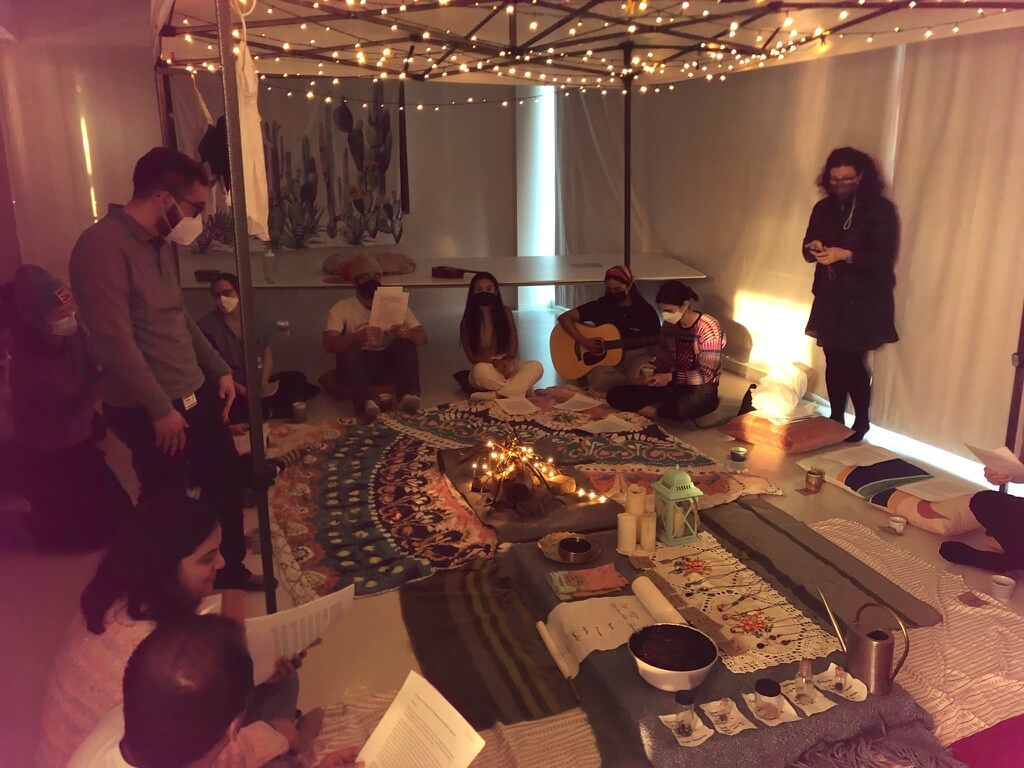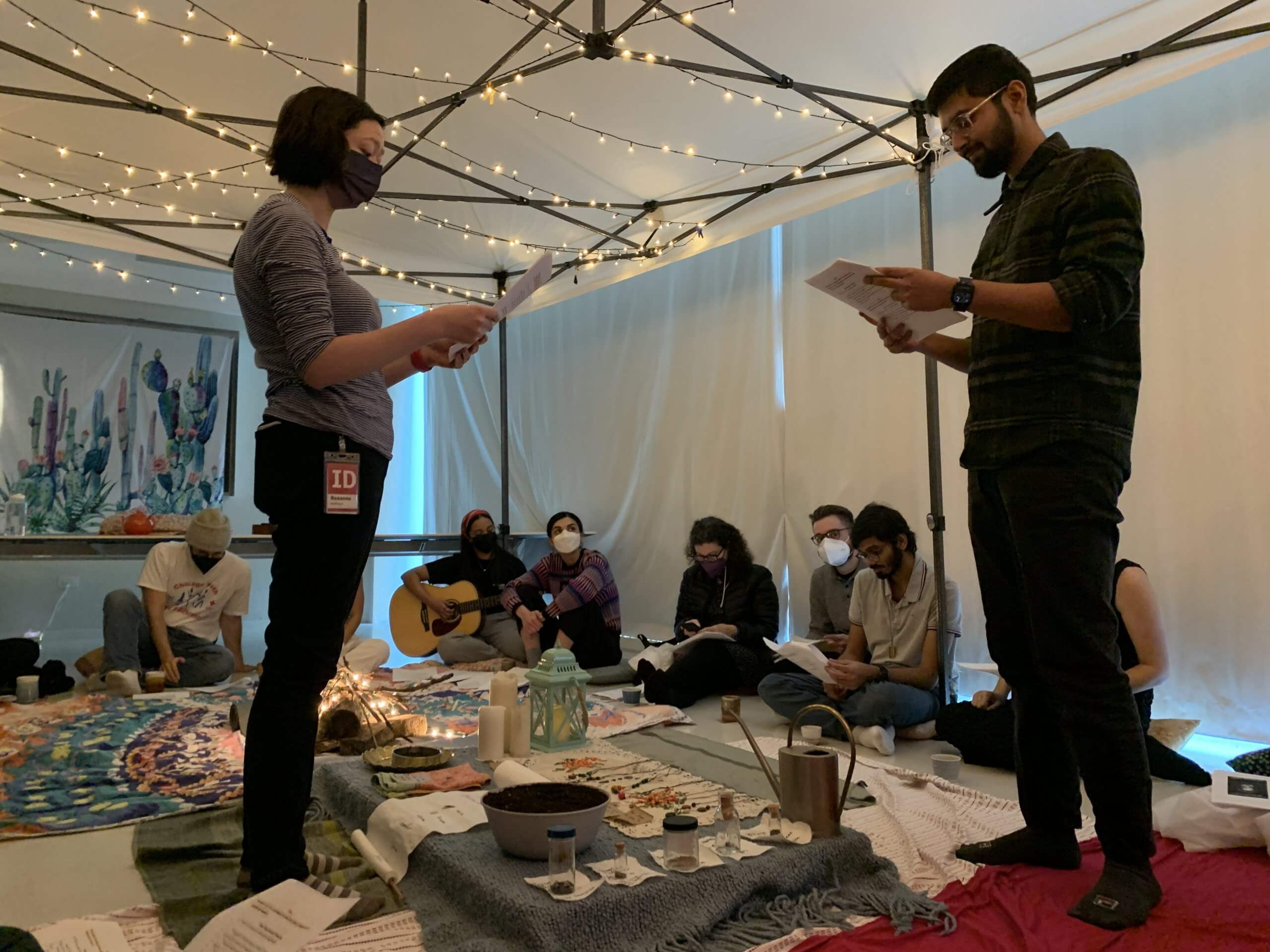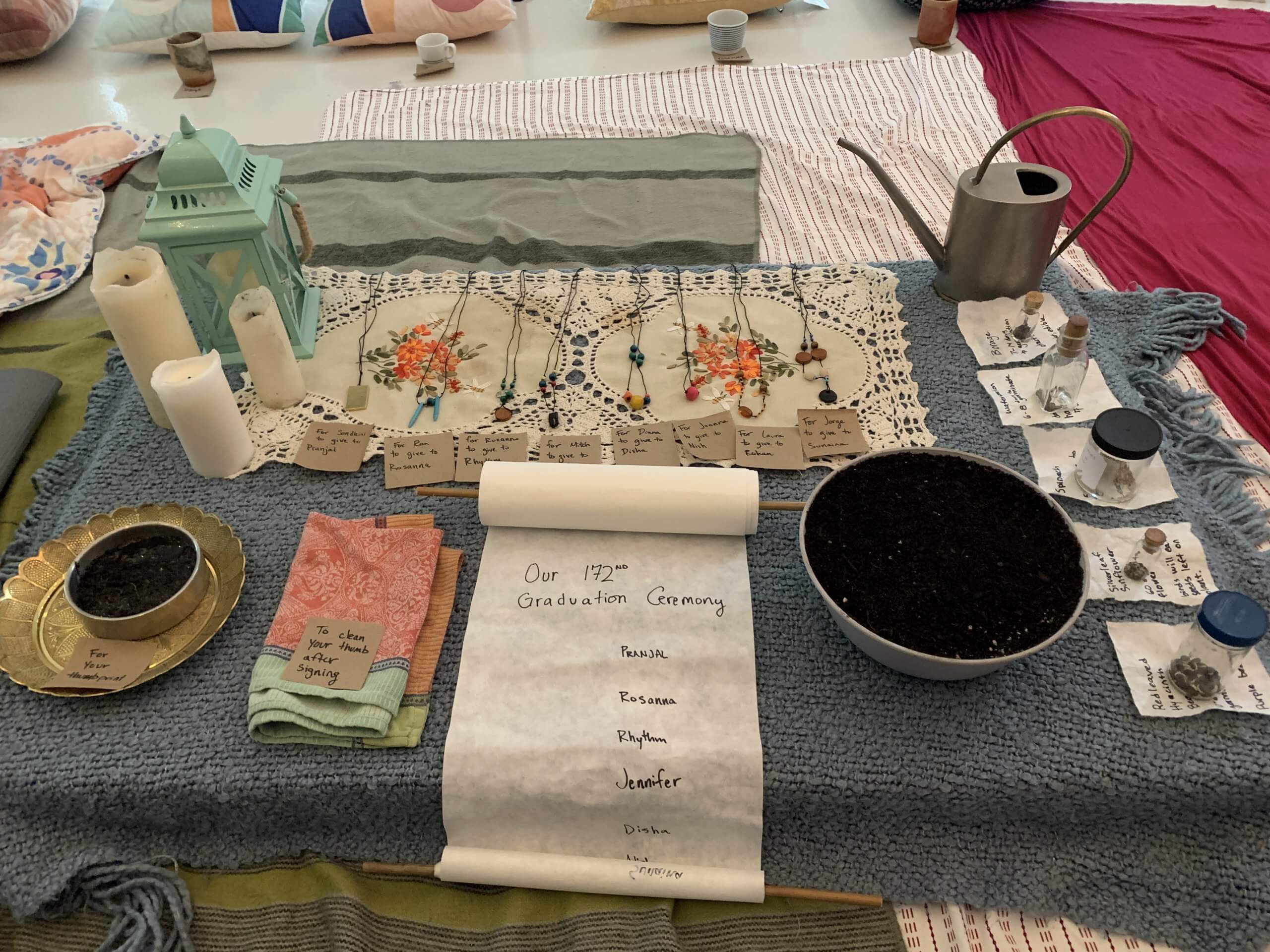The Possibilities of Community and Connection in a Post-Climate Change World
By Luce James & Anahita Dasgupta
March 23, 2023

We know that our future will be impacted by climate change. But how do we engage with the reality of a climate change-impacted future without collapsing into fear and cynicism, or worse; desensitizing and burying our heads in the sand?
ID students Ana Dasgupta (MDes 23), Amy Zasadzinski (MDes 22), Emery Donovan (MDes 23), and Elizabeth Graff (MDes 24) have developed an experience that immerses 30 participants at a time in an imaginary climate change future. The team found that engaging participants’ somatic awareness as well as their cognitive understanding was important because it required the participants to actively make decisions and take actions, which created a sense of accomplishment and captured and maintained their attention even if they were not initially invested in engaging with climate change.
By creating a rich sensory experience through a slightly warmer environmental temperature, room-temperature tea, music and soft furnishings, as well as engaging in role-playing community led activities, the designers were able to enhance the participants’ emotional connections to the experience—thus combating climate change exhaustion and desensitization.

Students participate in a graduation ceremony.
The team’s immersive scenario takes place in a future 300 seasons after ‘The Great Turning’ of 2050, a critical period of time when the team imagines US society experiencing catastrophic social collapse due to compounding climate disasters. At this point, as a result of ongoing climatic shifts, there are very few places where it’s safe to live year-round. As a result, most people are now members of nomadic communities who travel from place to place throughout the year.
In this future, education is focused on equipping members of the nomadic community with key skills given the circumstances—like becoming a solar technician, joy maker, or mediator. Such education programs are similar to today’s apprenticeship programs.
Zooming in on a particular moment in time, the ID team’s speculative scenario immersed participants in a graduation ceremony of one of these nomadic groups. The choice of a graduation ceremony was deliberate as it is an experience that many people can relate to, with embedded rituals that allow for the somatic experience that the organizers were aiming for. These rituals included tasks that had to be performed, exchanging necklaces, and reading scrolls/speeches. By combining all these elements, the organizers created a celebratory experience that connected with the attendees on a deeper level.

Artifacts from the staged graduation ceremony.
The experience engaged participants in a more nuanced, somatic, and possibility-oriented way of thinking about climate change. The ceremony highlighted relationships among community members. In the master-to-apprentice ritual, for instance, the master gave an individual speech to their graduating apprentices, necklaces were passed around, and new apprentices were welcomed through a communal poetry reading. Seating arrangements were intentional—all attendees sat on the floor to reflect the lack of power hierarchy in this community. These modifications helped to create a powerful experience that brought people together and fostered a sense of community and togetherness.
Participants were able to explore firsthand how ritual, strong individual relationships, and human adaptability can exist within a larger context of environmental devastation. They left the experience with a much more memorable and open-minded perspective on climate change, as compared to a traditional lecture or presentation.
Throughout their project, the students challenged participants to reconsider their conventional perception that climate change will end humanity as we know it.
This somatically-informed, speculative, and immersive approach could disrupt paralyzing climate thinking on a wider scale and help us look toward other, more optimistic possibilities that emphasize our connections with nature and community.